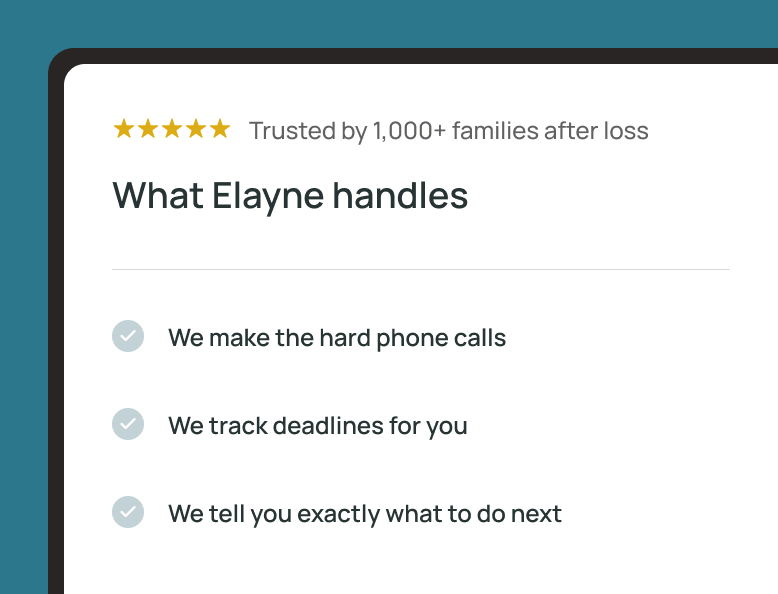As the competitive job market escalates, small businesses must distinguish themselves to attract and retain top talent. A vital aspect of this differentiation is the provision of attractive employee benefits.
Developing an enticing benefits package is imperative for businesses attracting and maintaining skilled workers in 2024. This article uncovers the hidden appeal of employee benefits, typical offerings, benefits to help your business stand out, and budgeting strategies to help you offer more value. We’ll also teach you how to communicate this value to employees and streamline your administration.
{{blog-cta-admin}}
The Importance of Employee Benefits for Small Businesses
Small businesses typically operate with smaller budgets and fewer resources than larger corporations. Comprehensive employee benefits packages can help offset prospective employees' concerns, adding a sense of safety and security to their lives. Additionally, benefits show value and appreciation for your employees on the job.
Employee Benefits Attract Top Talent
Employee benefits will directly impact the type of applicants you’ll receive for a position, adding additional value and perks. Whether adding to an existing team or building something from scratch, having a good mix of relevant benefits brings quality workers to your door. These benefits may include flexible hours, fitness and wellness allowances, maternity leave, bereavement and legacy planning, or remote work options.
Employee Retention and Productivity
Access to decent benefits increases employee satisfaction and stamina on the job. A satisfied employee is loyal to your business and brand, making them less likely to leave for other positions. When an entire team is satisfied, your business achieves higher levels of stability and less turnover. These two factors are the turning point in growth and efficiency on the job.
Fostering Engagement and Commitment
The days of salary dictating loyalty within a company are long gone. Employee benefits will be crucial in nurturing company engagement and fostering a more profound commitment to your brand. Thoughtful benefits can set your company apart, making it more attractive to work there and giving employees a reason to stay.
Competitive Edge in Talent Acquisition
In a tight labor market, your benefits package can give you the competitive edge needed to retain your best employees. Small businesses often have the advantage of offering more personalized and flexible benefits, which management can tailored to meet the unique needs of the workforce.
Common Employee Benefits Offered by Small Businesses
Health Insurance and Related Benefits
Health insurance is arguably one of the most sought-after benefits for an employee. Robust health insurance plans cover critical aspects of an individual’s health, including maternity needs, hospitalization, post-surgery care, medication, rehabilitative services, mental health programs, and laboratory services.
Financial Wellness Benefits
Financial wellness programs help individuals build a healthy relationship with money, reducing stress, anxiety, and uncertainty about their present and future economic situation. The most common financial wellness benefits include retirement plans with employer contributions, student loan and debt repayment assistance programs, and access to financial advisors.
Mental Health and Work-Life Balance Benefits
Many businesses implement comprehensive mental health support programs, such as employee assistance programs (EAPs), counseling services, and mindfulness initiatives. EAPs provide confidential counseling, access to mental health professionals, and other resources to help employees cope with stress, anxiety, and personal issues.
Fringe Benefits
Small businesses offer unique fringe benefits beyond traditional options to stand out in the competitive job market. These benefits may include remote work stipends to assist with home office expenses, standing desks to promote physical health, virtual social events to foster community, access to coworking spaces, and learning and development budgets for professional growth.
Implementing a few options can demonstrate a substantial commitment to employee well-being, work-life balance, and personal growth.
Standing Out with Unique Employee Benefits
To stand out in the competitive job market and attract top talent, you must offer creative and unique employee benefits beyond traditional offerings. Many talented employees now seek more than just the standard benefits package.
Unique Perks and Benefits
Talented employees look for more than the traditional benefits package, and offering creative employee benefits that other employers aren't providing can help you remain competitive. Some unique perks and benefits that can help you stand out include:
- Sabbatical leave or extended paid time off for personal or professional development
- Well-being allowances that cover expenses related to training, coaching, fitness, spa visits, books, or courses
- Experiential benefits, such as leadership development programs that incorporate outdoor activities or interactions with animals
- Implementing new-to-market benefits that encourage all aspects of life, including fertility support, bereavement policies, and legacy planning
- Employee-chosen benefits, where an employee has a say in the benefits they would like to see the company offer
Cost of Employee Benefits for a Small Business
Across both segments, a small business's cost of employee benefits requires a strategic approach to balance financial health with employee satisfaction.
Navigating Administration Costs
Navigating small—to mid-size business benefits administration costs is a crucial administrative task for business owners. The expense of providing health benefits can significantly impact a company's financial planning and employee satisfaction. Understanding these costs is not just about budgeting; it's about making strategic decisions that align with business goals and employee needs.
Assessing Administration Expenses
Assessing the expenses involved in health benefits administration helps businesses make informed decisions and manage their budgets. The cost of administering health benefits includes health insurance and other expenses such as administrative fees, contributions to Health Savings Accounts (HSAs) or Flexible Spending Accounts (FSAs), and compliance and reporting requirements costs.
Clear Communication
Clear communication about these costs is crucial for employers, especially in the small to midsize sector. It ensures employees are well informed about their health plan coverage and potential expenses, fostering trust and satisfaction with the health benefits provided. This transparency is vital in effectively balancing the small business benefits package cost and midsize business employee benefits costs.
Scalability and Flexibility
As your business grows, your benefits administration needs may change. Choose scalable and flexible solutions to adapt to your evolving workforce and requirements. Scalable platforms can grow with your business, minimizing the need for frequent system changes and ensuring continuity in benefits administration.
Global Capabilities
If you have a globally distributed workforce or plan to expand internationally, consider benefits administration solutions with global capabilities. These platforms can handle complexities such as multi-country compliance, currency conversions, and localized support.
Customer Support and Training
Adequate customer support and training can significantly enhance your experience with benefits administration tools. Look for excellent support providers, including knowledgeable representatives, comprehensive documentation, and training resources. This education ensures that you can fully utilize the software's capabilities and address any issues that may arise.
{{blog-cta-admin}}
Conclusion
In providing an attractive benefits package, small businesses can gain a competitive edge in attracting and retaining top talent. Comprehensive offerings encompassing healthcare, retirement plans, wellness initiatives, new-to-market benefits, and flexible work arrangements demonstrate a commitment to employee well-being.
Striking the right balance between competitive benefits and financial feasibility requires strategic budgeting. A thoughtful approach to employee benefits positions small businesses as desirable employers.












































